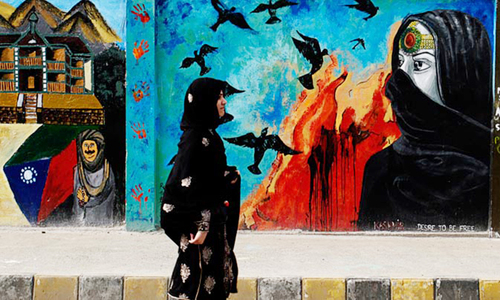ISLAMABAD: A new study shows that the world could achieve a ‘gender dividend’ of $172 trillion by closing gaps in lifetime labour earnings between women and men.
The World Bank study, ‘How Large is the Gender Dividend? Measuring Selected Impacts and Costs of Gender Equality’, finds that if women earned the same as men, global human capital wealth could increase by about one-fifth, and women’s human capital wealth could increase by more than half.
Investments to end gender inequality should not be based solely on economic considerations. The primary motivation for ending gender inequality should be to address the substantial risks and suffering affecting girls and women throughout their life. However, demonstrating the magnitude of the impacts and costs of gender equality provides additional justification for investments in girls and women.
While further work is needed to identify the best policy options at the country level to improve opportunities for girls and women, lessons can be learned from international experience. Ending gender inequality is not only the right thing to do from a moral and ethical standpoint; it is also a smart investment.
The study suggested targeting high prevalence areas for gender inequality or some of its particular manifestations through interventions in order to reach tipping points on social norms in communities, and to prepare diagnostics and strategies to end gender inequality.
According to Senior Director of Gender at the World Bank Group, Caren Grown, “Improving women’s lifetime earnings opportunities can be achieved by taking actions that redistribute and balance care responsibilities, create a pipeline of talent by closing the gender gap in employment and entrepreneurship, and tackling discriminatory laws and restrictive social norms that hold back girls and women.”
Gender inequality remains pervasive. Women are less likely than men to join the labor force and to work for pay. When they do, they are more likely to work part-time, in the informal sector, or in occupations that have lower pay. These disadvantages translate into substantial gender gaps in earnings, which in turn decrease women’s bargaining power and voice, study notes.
Women and girls also face risks of gender-based violence in their homes, at work, and in public spaces. Their voice and agency is often lower than that of men, whether this is within the household, at work, or in national institutions.
Fundamentally, gender inequality disempowers women and girls in ways that deprive them of their basic human rights.
If gender equality could be achieved, first year benefits from lower population growth are valued at $80 billion for 16 developing countries with a combined population of 2.3 billion people, and additional benefits would accrue in subsequent years.
Savings are estimated as the reduction in the anticipated cost of reaching universal secondary education by 2030 in 16 countries.
The benefits increase over time and could reach up to $27bn by 2030 in those countries. This is an upper bound estimate of potential savings since countries may not reach universal secondary education by 2030.
Gender inequality has negative impacts for girls and women throughout their lives and these impacts result in large costs to economies. These impacts were documented in this study in five main areas: earnings and standards of living; educational attainment, child marriage and early childbearing; fertility and population growth; health, nutrition, well-being, and violence; and agency, decision-making, and social capital.
The potential economic costs of gender inequality in terms of lost wealth for countries are substantial, the study says.
Published in Dawn, March 5th, 2020














































